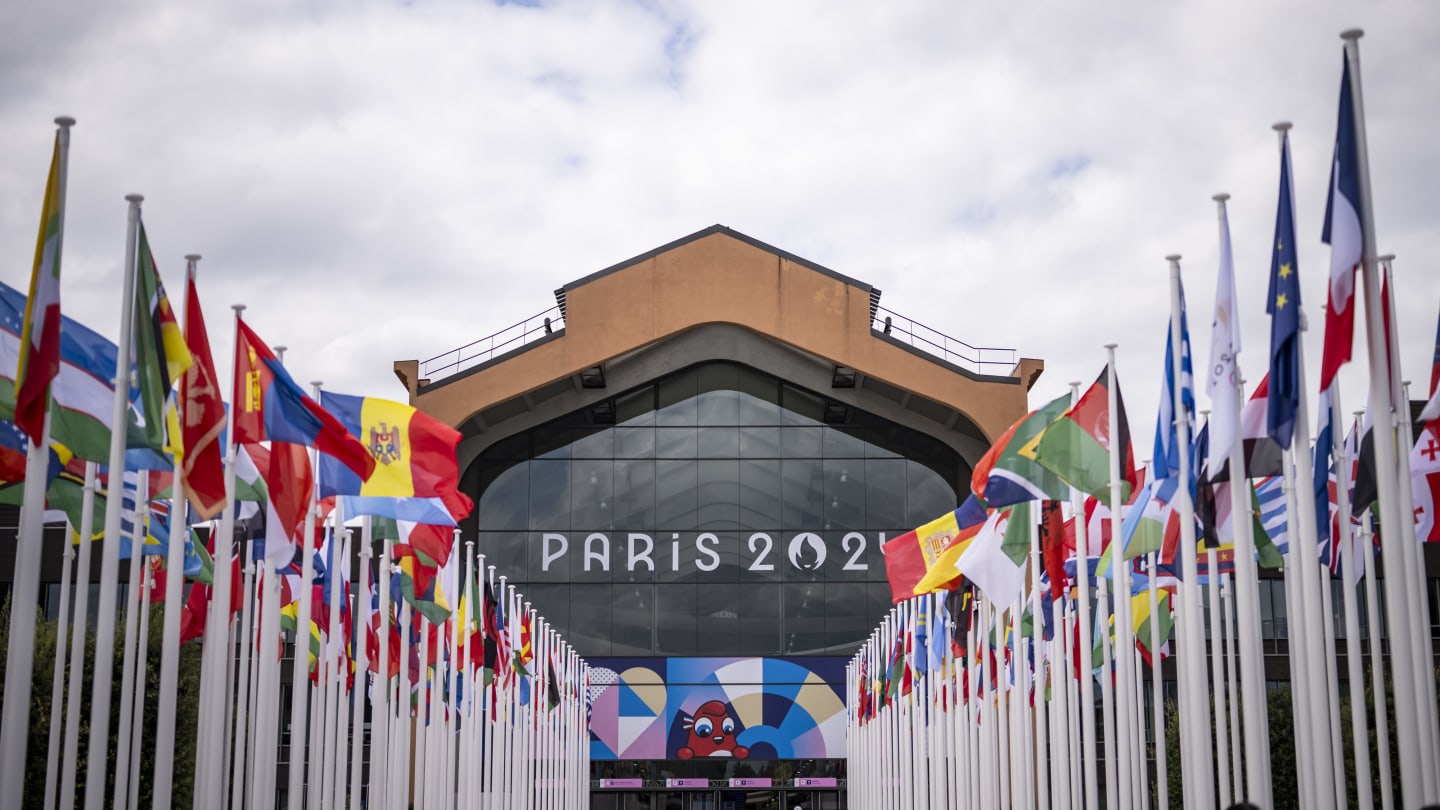You are using an out of date browser. It may not display this or other websites correctly.
You should upgrade or use an alternative browser.
You should upgrade or use an alternative browser.
The Official 2024 Paris Summer Olympics Thread (from July 26 - August 11) - Closing Ceremony replay at 7pm EST
- Thread starter Nero Christ
- Start date
-
- Tags
- 2024 olympics paris summer
More options
Who Replied?Usa vs serbiaBrehs what your fav Olympic moment so far?
Mens 100
Usa shattering the WR in 4x100 medly
Mens 10k finish
Woman’s high jump
Turkish shooter
Simone’s dominance
France winning judo and the ovation
Spain womans volleyball (beach vollyball in general)
The fencing arena and that sight
Velvet_Ace
Pro
Really cool to have a Breaking event

Jean toomer
Superstar
Jamal Murray’s overall play…Brehs what your fav Olympic moment so far?
Closely followed by Simone Biles in the all around, great redemption story.
Not 1 black B girl?? Wtf
Just euros & asians
MajesticLion
Veteran


U.S. Athletes Are Taking Full Advantage of Free Healthcare in Olympic Village
Women’s rugby player Ariana Ramsey’s videos showcasing her appointments have gone viral, and now many others are making good use of Paris's medical services.
 www.si.com
www.si.com
U.S. Athletes Are Taking Full Advantage of Free Healthcare in Olympic Village
Women’s rugby player Ariana Ramsey’s videos showcasing her appointments have gone viral, and now many others are making good use of the medical services offered in Paris.
PARIS — Ariana Ramsey won an Olympic bronze medal with the U.S. women’s rugby team here last week. A few days later, something almost as exciting happened: She got a pap smear. For free.
“Like, what?” she said in a post on TikTok describing her new discovery: The Olympic Village offers free healthcare.
The United States, of course, does not. So in the days following her victory, Ramsey made appointments with the Village gynecologist, dentist and ophthalmologist. According to the Paris 2024 organizing committee, the Village also offers cardiology, orthopedics, physiotherapy, psychology, podiatry and, of course, sports medicine—all at no cost to the athletes. (Paralympic athletes will also have access to dermatology.)
Ramsey came to Paris as a rugby player. She is leaving as a healthcare influencer. More than 135,000 people have watched her initial TikTok, and another of the half-dozen follow-up videos she has made has pulled in more than 570 views. That is fine with her. The more she thinks about it, the more frustrated she is that she’s so astonished by the concept.
“That’s just America and their privatized healthcare system,” she laments in an interview, adding, “I’ll fight for universal healthcare.”
The idea has gone viral in France: American discovers healthcare. “A lot of people are kind of making a joke about it,” she says. “Like, welcome to France.”
In fact, the Olympic Village has offered athletes and their delegations free healthcare since—ironically—the 1932 Los Angeles Games. But not many athletes know the option exists. The polyclinic is designed to handle as many as 700 patient visits per day, but Ramsey says many of the staffers there have thanked her for her videos, because she is bringing awareness to the option. She says she has gotten DMs from other athletes expressing surprise, and a few people have recognized her in person and said that her videos encouraged them to visit the clinic.
A 2022 study by The Commonwealth Fund found that the U.S. is the only high-income country without universal healthcare. Many American athletes do have access to the United States Olympic and Paralympic Committee’s health insurance policy. But their eligibility for the program is up to their sport’s governing body, and an independent commission appointed by Congress found that “some of the most talented competitors under our flag go to sleep at night under the roof of a car or without sufficient food or adequate health insurance.” More than a quarter of U.S. athletes report earning less than $15,000 per year, and more than 40% said they paid out of pocket for healthcare, with an average cost of $9,200 per person. Only 16% said they’d been reimbursed.
Because the U.S. is one of three countries whose elite athletes receive no government funding, athletes know that they need to find opportunities to build their brands to try to earn enough money to continue competing. Ramsey, for example, came to the Olympics planning to focus on both rugby and making videos, because, she says, “The only other job for women in sports, really, is social media.”
So the ease of the Village system has been enlightening. Ramsey has 20/20 vision, but sometimes her eyes blur at night. The doctor gave her glasses. At her teeth cleaning, they did an X-ray. She paid for none of it. “They really go above and beyond,” she says.
All this means that athletes are beginning to adjust their plans after competition is over. Instead of going to Disneyland, skateboarder Steven Piñeiro, representing Puerto Rico, says, “I’m gonna go to the dentist.”
Just euros & asians
It’s not surprising ….They the only ones who care about breaking anymore..specifically Asians
The Afghan Girl took her top.off to Reveal
FREE AFGHAN WOMEN
FREE AFGHAN WOMEN
Nero Christ
Sniper out now on all digital platforms brev
Brehs what your fav Olympic moment so far?
Alfred winning St. Lucia our firest medal (and it being a gold in the W100M)


Alcaraz/Djokovic gold medal match
Quincy Hall's win
Discovering Paula Soria Gutierrez

The commentators trying to discuss the rules of breaking is hilarious..,they have no idea what they watching 

Piff Huxtable
Delaney 2020,2024,2028...
I hope they go with Hall, Norwood, Bailey and Benjaminjust seen that Quincy Wilson leg of the relay, who is actually running in the final?
Norman looked like trash in the final, Deadmon should be sent home after his performance in the Mixed-Relay
KnowledgeDropper
All Star
These hypemen for breaking are hilarious
Good second battle
France vs Lithuania breaking us dope